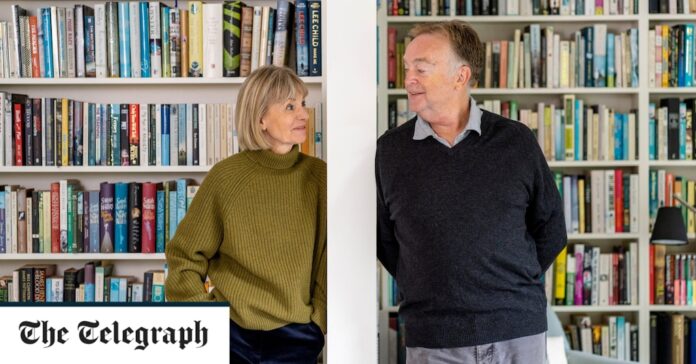One is a bestselling author; the other is about to release his debut – but what are their lives really like?
It was because of the pandemic that Greg Mosse, husband of the bestselling author and playwright Kate, was finally able to write his first novel. His normal profession – playwright and theatre producer – had become entirely redundant in lockdown. Writing fiction had been on his mind, but he never had the time. But then suddenly he did.
The Coming Darkness is a thriller set in 2037, a compelling story about a French spy on the trail of global eco-terrorists who are trying to destabilise the controls protecting the human race from climate change. “Greg Mosse writes like John le Carre’s hip grandson,” says Lee Child, on the blurb. The book is absorbing and intricately plotted, and Greg is already halfway through its successor. “I wanted it to be set in the near future,” he says, “dealing with all the things we’re concerned about today but more so – when the problems have become more severe, more insistent, more urgent.”
While Greg was writing about a fictional future in his study upstairs, his wife was downstairs researching her non-fiction book about the past. Kate has written eight historical novels, including the multi-million selling Languedoc trilogy, but only recently dipped her hand into non-fiction. Unsettled by how women’s achievements are often omitted from history, in early 2021 she started a social-media campaign asking “Who should we remember? Name one woman from history that you’d like to celebrate or think should be better known.”
“It was the only time I have trended on Twitter for being myself rather than the other one,” she says wryly. Her new book, Warrior Queens & Quiet Revolutionaries: How Women (also) Built the World, looks at the achievements of 1,000 under-rated women, and is intertwined with her own family history – the life of her great-grandmother, Lily Watson, a celebrated novelist in her day who was completely overlooked by history.


